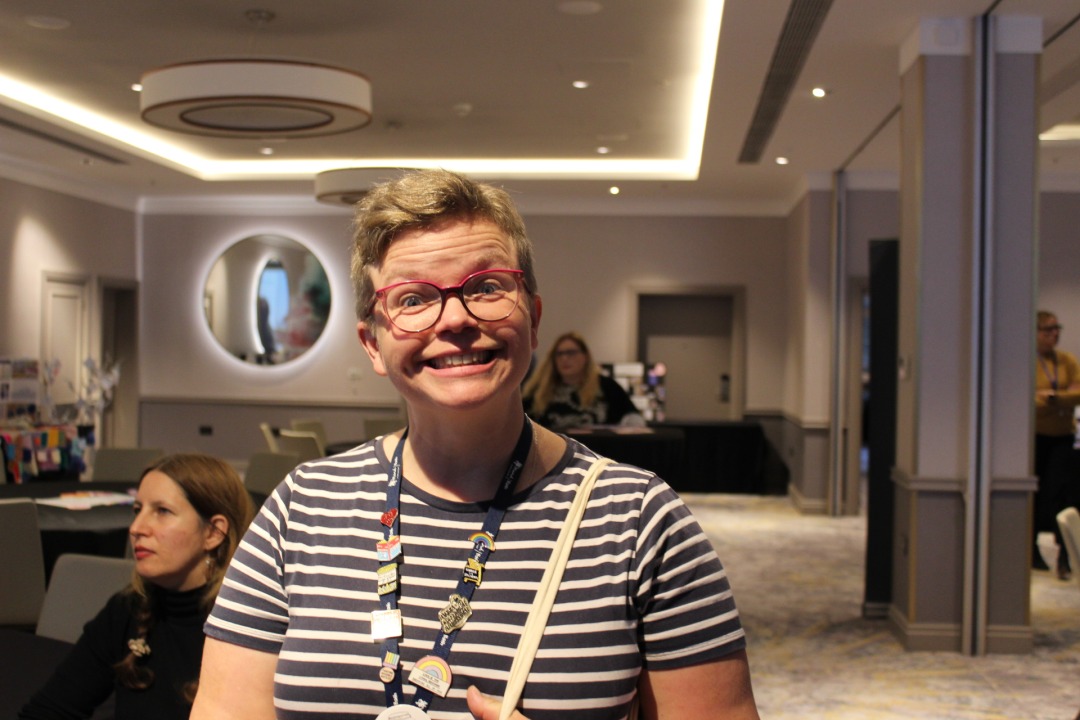Neurodiversity Celebration Week 2024
The following article has been written by staff member Hannah, Senior Support Worker at Bath Mind’s Breathing Space service and Chair of the Bath Mind staff Neurodiversity subgroup. A huge thank you to Hannah for her wonderful insight and helpful tips this Neurodiversity Celebration Week.
What Is Neurodiversity?
Neurodiversity is a non-medical term to describe the different ways that people’s brains work – literally the diversity of our brains. People whose brains work differently from what is considered normal are often called “neuro-divergent”.
Neuro-divergence can affect someone’s perception of the world (the things they notice or are sensitive to) or impact their thinking or processing of information (jumping from one thing to another rather than following a more linear path).
What makes someone neuro-divergent?
There are many ways in which a person could be neuro-divergent, including:
- Neuro-developmental conditions that have been present since birth such as ASD, ADHD, Dyslexia or Dyspraxia
- Acquired neurological differences caused by brain injury or neuro-degenerative conditions (this could be temporary or permanent)
- Some mental health conditions and mental illnesses that affect thinking or perception
- Changes in brain chemistry, e.g. big hormonal changes
- Psychological trauma is believed to be capable of altering brain structure (this could be temporary or permanent)
Our understanding of how our brains work is changing all the time. There’s the potential for overlap between all of these groups. In many ways, the reason why someone is neuro-divergent is not important. Every brain is different. Two people with the same diagnosis won’t be the same. Their thoughts, feelings, communication, interests, personality and experiences will be completely unique.
Why do we celebrate neurodiversity?
Celebrating neurodiversity – celebrating any kind of diversity – is about celebrating the value of individuals. When we talk about celebrating neurodiversity, we are acknowledging the benefits that there are in having people who think differently, in our schools and colleges, in organisations and workplaces, in positions of influence and power, in all areas of society.
How can I support myself?
Hannah has recorded a brilliant video where she shares five strategies that support her.
How can I seek a diagnosis?
The past couple of years has seen a huge increased in adults seeking ADHD or ASD diagnoses. For many of us, the trigger was conversations with neurodivergent friends (you know who you are), seeing TikTok videos, listening to podcasts or reading articles which resonated with our life-long experiences and struggles. For others, their child being diagnosed may have led them to consider if they too might be neurodivergent — neuro-developmental conditions are strongly genetically linked, though there are other causes too, and no one is sure how nature and nurture combine.
This enormous leap in assessments coupled with NHS pressures has caused a backlog and the waiting list is years long in some areas. The starting point for assessment is you GP who will refer you onward if they agree that you need further assessment or treatment. In England, patients have something called Right to Choose (RTC). RTC means that you can ask to be referred outside of the local NHS pathway, to a qualified provider elsewhere in England. Private organisations are able to provide ASD and ADHD assessments free at the point of need to NHS patients. There will still be a wait, but it is months rather than years.
ADHD UK, a national neurodiversity charity, has an up to date guide to the organisations offering assessment under RTC as well as step-by-step instructions on how to speak with your GP about assessment for ADHD, ASD or both.
Useful Resources:
- A great neurodiversity glossary: https://assets.production.copweb.aws.college.police.uk/s3fs-public/2021-06/neurodiversity-glossary-of-terms.pdf
- Listen to an account of what it’s like when you go from having a “normal” brain to a diagnosis of acquired ADHD due to multiple sclerosis: Episode 201: Traumatic Brain Injury, Multiple Sclerosis and ADHD with Amanda Smith (youtube.com)
- This webinar delves into how hormonal changes during menopause can increase or even mimic ADHD symptoms and traits: Menopause Symptoms vs. ADHD: Estrogen, Dopamine, Cognition, Women’s Health (additudemag.com)
Posted on: 5th March 2024
